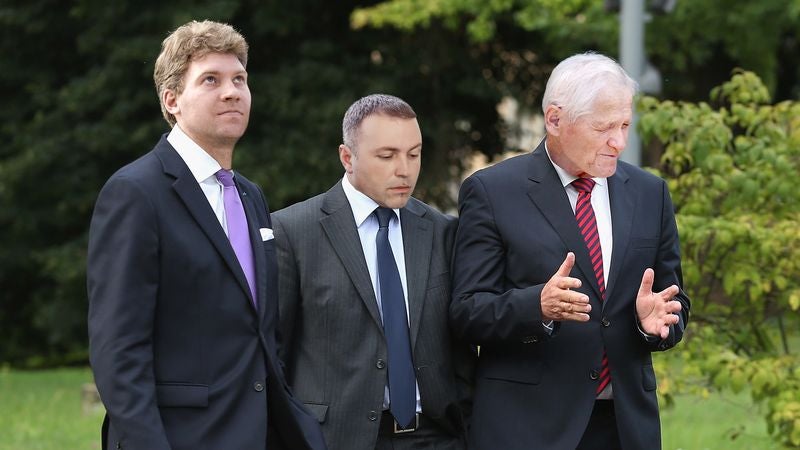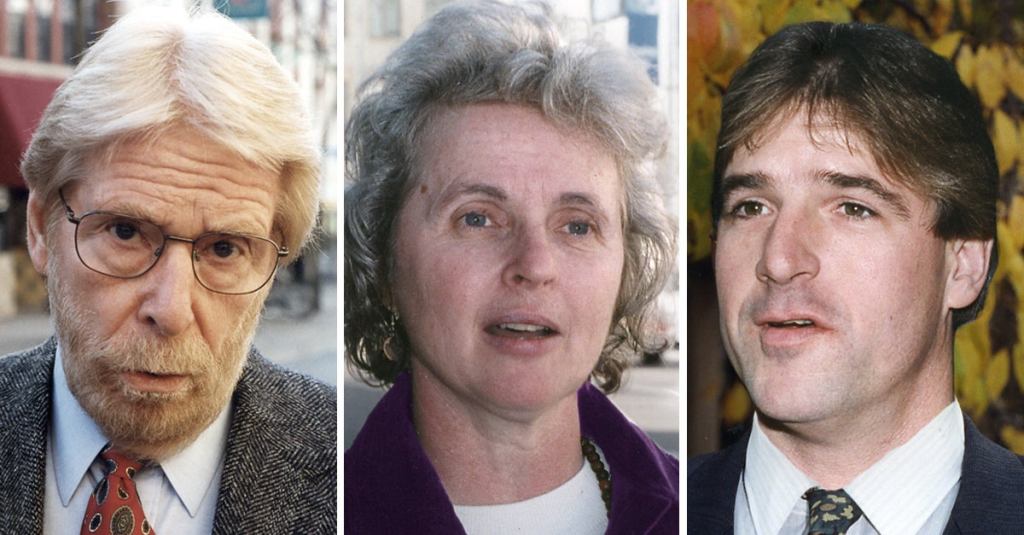WASHINGTON—Citing his habit of haranguing younger colleagues about the way things used to be, sources confirmed Wednesday that 74-year-old veteran ExxonMobil lobbyist Hank Foraker is constantly droning on about how much cheaper legislation was back in his day.
The longtime Washington power broker is said to rarely miss an opportunity to hold forth on “the good old days” of the 1970s and ’80s, often repeating the same long, rambling stories about a time when lobbyists and their clients reportedly received a lot more political influence for their dollar than they do today.
“Let me tell you, back when I was a young man, you could get a half dozen bills pushed straight through both houses for what a single congressman’s vote will run you nowadays,” said Foraker, who remarked that 30 years ago, acquiring an exemption from the Clean Water Act cost a tiny fraction of what it does today. “And you’d still have plenty left over to purchase the loyalty of a Cabinet member or a handful of senior White House advisers, too. You don’t even want to know how little it took to buy off a governor back then. You probably wouldn’t believe me if I told you.”
“It was just a simpler time,” Foraker added. “A quick phone call, a small payoff, and in no time at all, your client could be extracting oil from a federal wildlife preserve. Those were the days.”
According to sources, Foraker often grows wistful for a past in which an eager young lobbyist on a shoestring budget could secure basic legislative carve-outs and tax loopholes for the industry he represented. He noted that a person equipped with the same resources today “wouldn’t even be able to get a simple poison-pill amendment passed.”
Several coworkers stated that on multiple occasions, Foraker has lectured them at length on how there was once a time when it was unheard of for Big Oil interests to pay $500,000 for a House Energy Committee chairman’s cooperation over a two-year term. Additionally, they said he often grows irritated when lobbyists in their 20s and 30s complain about campaign finance restrictions, insisting that at their age, he’d had to surreptitiously pay lawmakers in person to ensure passage of the Trans-Alaska Pipeline Authorization Act of 1973.
“These guys have it so much easier today,” said Foraker, explaining how modern oil industry lobbyists can, with the click of a button, electronically funnel millions of dollars to a super PAC running television ads in support of the Keystone Pipeline. “In the ’80s, you’d take a lawmaker out to a nice steakhouse, look him in the eye, hand over a briefcase with $10,000 in cash toward a reelection campaign, and promise him a highly paid position on your company’s board of directors if he worked to repeal the crude oil windfall profit tax. And in those days, a handshake and your word actually meant something.”
“Now, you’re lucky if organizing a $5,000-a-plate campaign fundraiser gets you 20 minutes alone with a ranking senator on an energy subcommittee to discuss ways to weaken nationwide renewable fuel standards,” Foraker added. “It’s just not as personal as it used to be.”
Many fellow lobbyists conceded to reporters that while Foraker’s tendency to nostalgically reminisce can be endearing at first, it quickly becomes tiresome listening to him talk endlessly about how expensive it has become to hire former high-level officials from the Department of Energy and use their bureaucratic connections to obstruct new offshore oil rig safety regulations.
“Hank’s a nice guy, but I don’t really need to hear about how the amount we recently paid to get the ban lifted on deepwater drilling in the Gulf of Mexico would have been enough to gut 10 anti-pollution bills back in the ’70s,” said Nick Tennelly, a 28-year-old government relations associate at ExxonMobil. “And I think he exaggerates a lot. He once stopped me in the hallway to tell me about this time when, for just a few million dollars, they got the vice president of the United States to convene a secret task force to block green energy initiatives. C’mon. I know things were cheaper in the past, but I have a tough time believing they were that cheap.”
“To be honest, I don’t even see what the big deal is,” Tennelly added. “Even if the industry’s now spending a couple hundred million dollars on lobbying every year, it’s still a drop in the bucket compared to our annual tax breaks.”







